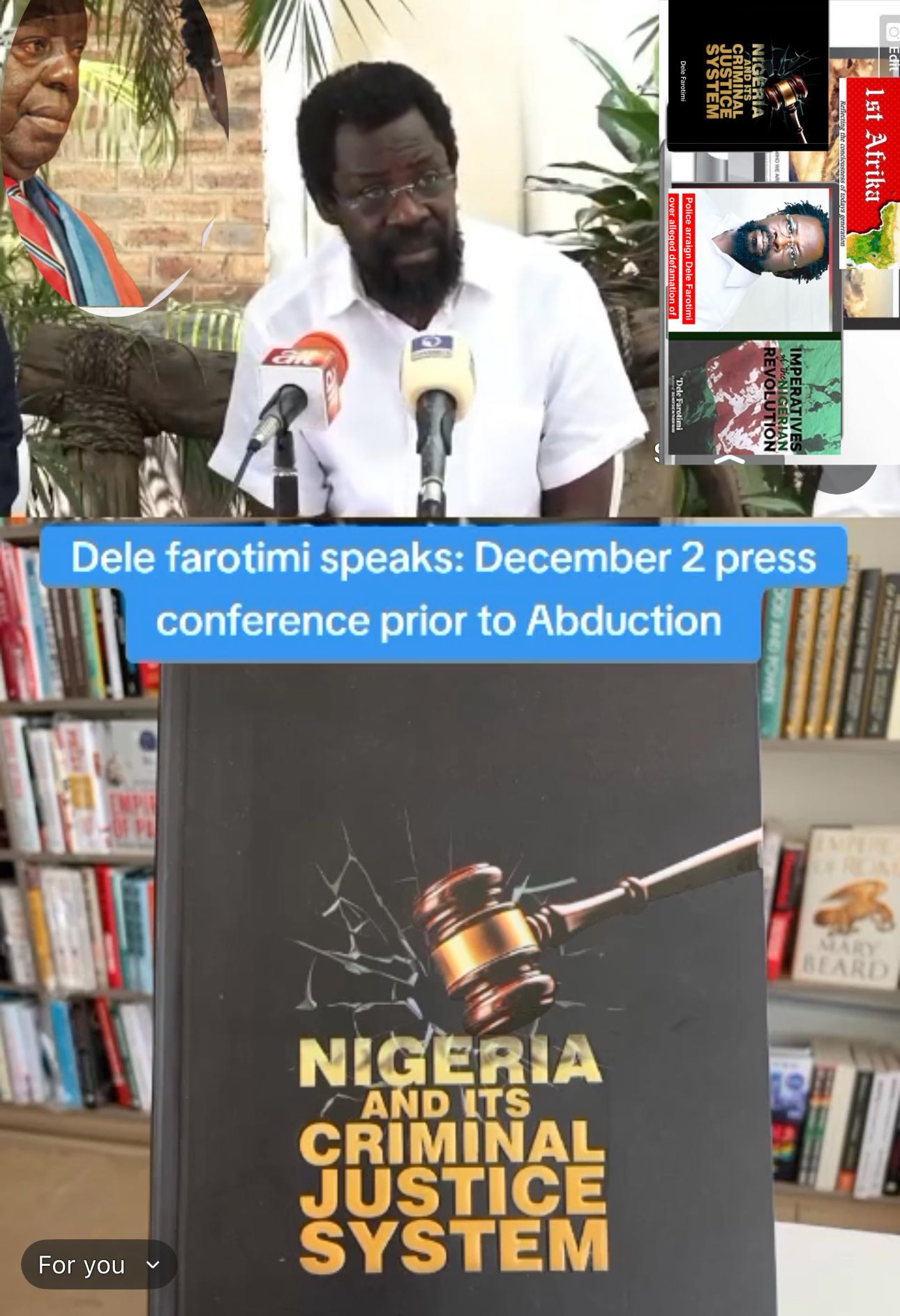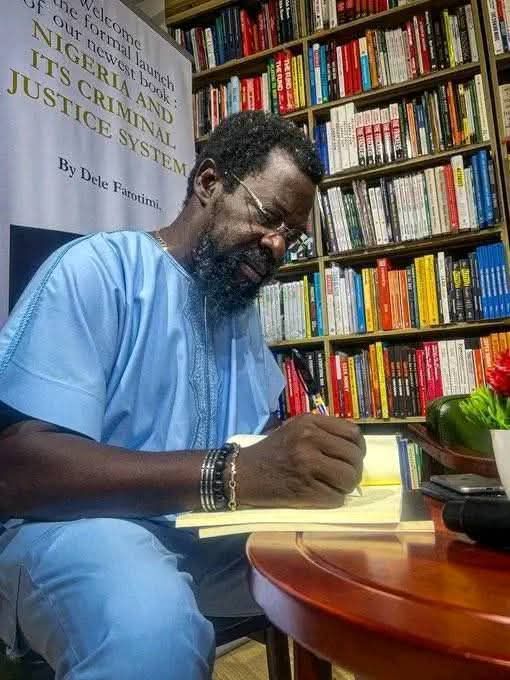
Dele Farotimi’s book Nigeria and Its Criminal System is an audacious exposé of the Nigerian judicial landscape, driven by personal experience and legal battles that transcend mere advocacy, evolving into a profound critique of systemic corruption. The narrative unfolds as a meticulously crafted chronicle of legal confrontations, centering on a contentious land dispute involving the Ojomu Chieftaincy family, the Eletu family, and notable legal personalities, including Chief Afe Babalola, SAN. Farotimi’s account, framed through the lens of a legal practitioner entrenched in a labyrinthine web of power struggles, exposes how judicial manipulation and corrupt practices have derailed the sanctity of Nigeria’s justice system.
At the heart of the book lies a protracted legal contest over 240 hectares of prime land in Lagos, acquired by the Lagos State Government in the 1970s but fiercely contested by the Eletu and Ojomu families. Despite a decisive Supreme Court ruling in 2013 awarding only 10 hectares to the Eletu family, the narrative takes a dramatic turn when legal machinations allegedly spearheaded by Afe Babalola, SAN, led to a reversal in 2014, granting the Eletu family the entire 214 hectares previously reserved for the Ojomu family. Farotimi, acting as legal counsel for the Ojomu family, vigorously challenges this judicial reversal, characterizing it as a product of legal manipulation facilitated by forged court orders and questionable judicial practices within the Lagos State judiciary.
The ensuing battle thrusts Farotimi into a legal and ethical struggle against formidable forces. His assertion that Chief Afe Babalola was promised exorbitant legal fees to secure a favorable ruling underscores the depth of his allegations. His confrontation with Justice Atilade over a questionable writ of possession reveals how legal technicalities can be manipulated under the guise of documentary irregularities, a euphemism for fraud, according to Farotimi’s compelling argument.
The fallout from the Supreme Court’s 2014 judgment laid bare the opportunistic alliances within the legal fraternity. Farotimi alleges that after securing the contentious judgment, the Eletu family, along with insiders within the Lagos Ministry of Justice, sidelined Chief Babalola, opting to deal directly with real estate developers for personal gain. This betrayal provoked retaliatory petitions from Chief Babalola, setting off a chain of legal confrontations involving high-profile actors, including former Lagos Chief Judge Ayotunde Phillips and former Solicitor General Lawal Pedro.

Farotimi’s subsequent libel suit against Chief Babalola was less about personal vindication and more a strategic effort to publicize what he saw as an egregious miscarriage of justice. His legal gambit was ultimately stifled through judicial interference, a development he attributes to deeply entrenched legal power brokers determined to suppress his revelations.
In Nigeria and Its Criminal System, Farotimi emerges not merely as a legal advocate but as a relentless crusader for judicial reform, willing to sacrifice personal and professional security to expose corruption. His relentless pursuit of justice, though controversial, underscores a critical need for transparency and accountability in Nigeria’s judicial system. His book is less a memoir and more a searing indictment of a system that he believes has been hijacked by greed, influence, and legal manipulation.
Whether viewed as a rebel with a cause or a disruptive force in an already fragile legal system, based on my review and final straw, Dele Farotimi’s Nigeria and Its Criminal System stands as a direct and confrontational critique of Nigeria’s judicial structure a blend of provocation, vendetta, and a determined call for systemic reform. It is an audacious legal memoir that oscillates between sharp accusations and a relentless pursuit of justice, where personal grievances and institutional failures intersect in a complex narrative of power, betrayal, and legal manipulation.
Farotimi’s approach is both daring and volatile, driven by a sense of mission that borders on legal brinkmanship. His exposé reflects a calculated attempt to challenge entrenched forces, using the power of narrative to illuminate systemic rot. However, his method is not without flaws; at times, the book veers into reckless assertions, subjective interpretations, and moments of incoherence where personal vendettas cloud legal reasoning. His choice of language is often incendiary, blurring the line between legal advocacy and outright rebellion.
Despite its stylistic excesses, Nigeria and Its Criminal System is more than a personal manifesto it is a high-stakes gambit aimed at exposing the institutional corruption that plagues Nigeria’s judiciary. Farotimi’s willingness to confront powerful legal figures and expose controversial judgments reveals a calculated, even suicidal, defiance. It is a narrative driven by a singular desire to dismantle a system he views as irredeemably compromised, regardless of the personal consequences.
Whether seen as a reckless provocateur or a fearless reformer, Farotimi’s unwavering resolve secures his place as a significant voice in Nigeria’s fight against judicial corruption. His story transcends personal vendetta, evolving into a bold attempt to force systemic accountability. Nigeria and Its Criminal System is thus both a contentious legal memoir and a critical historical document a volatile yet essential reckoning with the legal and political realities of contemporary Nigeria.
By: Jide Adesina
1st Afrika
All rights reserved
December.

